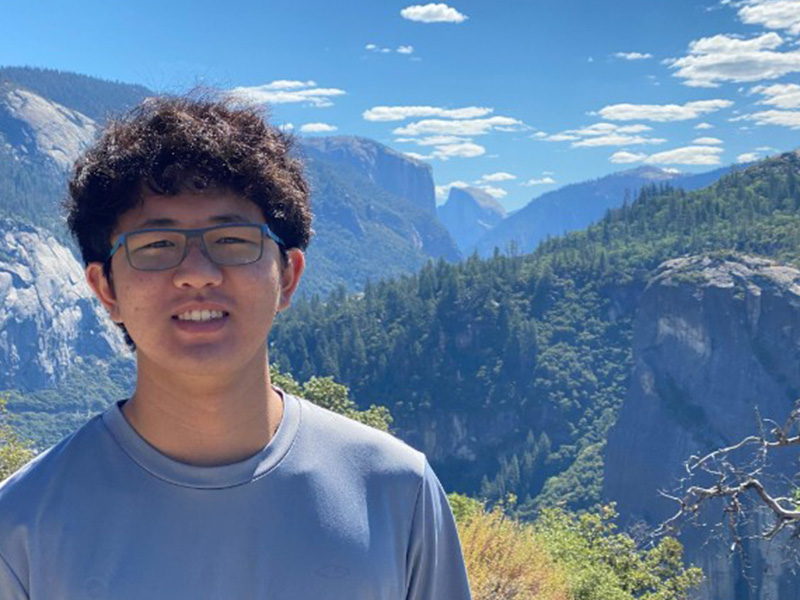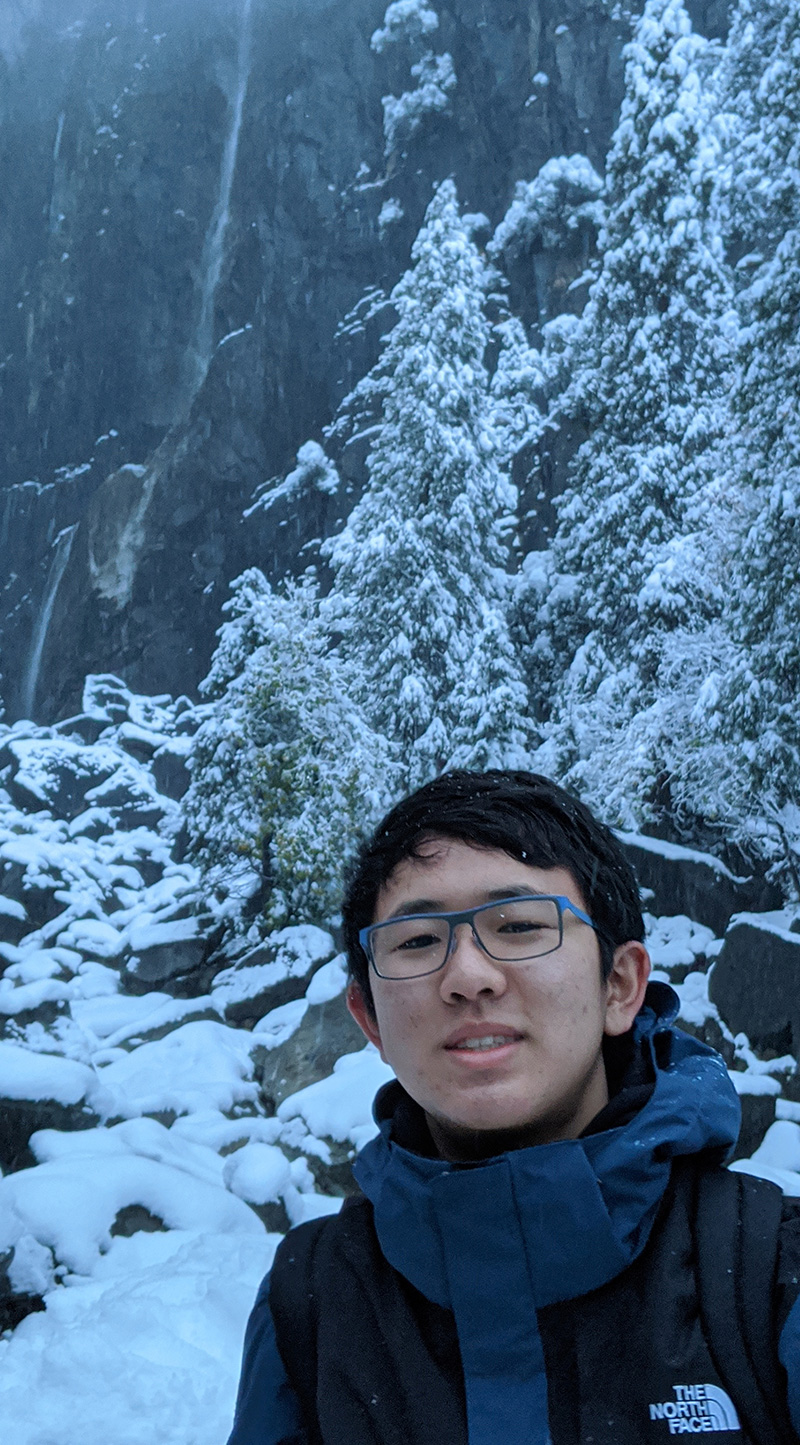
Matteo Kimura
NASA Citizen Scientist
Independence High School | Frisco, Texas
I initially learned about NASA citizen science when I participated in the 2020 NASA STEM Enhancement in the Earth Science (SEES) Summer High School Intern Program.
Due to my experiences with mosquitoes and mosquito-borne disease as a Brazilian, I decided to join the Mosquito Mappers team, where part of the internship was collecting and analyzing GLOBE Mosquito Habitat Mapper and GLOBE Observer Land Cover citizen science data.
During the SEES internship, I saw opportunities to utilize my interest in programming to automate certain tasks that made the data we were using more accessible and easier to use. Also, I really wanted to continue contributing to these initiatives after seeing the potential of these data sets in not only improving our understanding of the world, but also empowering and encouraging communities to participate in science.
At the end of the internship, I volunteered to continue working on two projects during the fall. I was offered the opportunity to be a data science intern for the Institute for Global Environmental Strategies (IGES) in spring 2021. I was later asked to be a peer mentor for the 2021 SEES interns. Being a volunteer citizen scientist over the past year has allowed me to apply my skills in computer science and contribute to our understanding of the Earth system.
I’m currently a senior at Independence High School in Frisco, Texas, and I’m planning to go into either computer science or computer engineering in college.
Outside of school, I’m heavily involved in the FIRST Robotics Competition (an international high school robotics competition) as I lead our school’s programming team, and I contribute to open-source tools used by FIRST teams around the world. I find it really fascinating to be able to take the data that the robot is constantly collecting and turn it into commands for the robot to accurately control itself.
When I get the chance, I love grilling barbeque, and I really enjoy taking walks in my local area to appreciate the nature in my community.

The main thing I’ve learned about science is its constantly evolving nature. It was really cool seeing our methodology, approach, and use of the GLOBE data being iterated upon to produce better science and accommodate technological innovations in software tools and satellite data.
I worked on the data quality team. My major contribution was creating automated Python procedures (Python is a common programming language) to clean the Mosquito Habitat Mapper data set and download its photos. This work got published in 2021 in a peer-reviewed article in GeoHealth called “GLOBE Mosquito Habitat Mapper Citizen Science Data 2017–2020.”
As a team, we are developing a library of code products to make high-quality data from GLOBE Mosquito Habitat Mapper and GLOBE Observer Land Cover more accessible to the public. I have been developing Python procedures and Jupyter Notebooks (an open-source web tool that lets coders create and share documents containing text, live code, visualizations, and equations) that can be archived and reused.
Our SEES team also presented two papers at the Citizen Science Association conference in spring 2021. We are presenting two more at the 2021 American Geophysical Union Fall Meeting.
Internet access and computer speed aren't an issue for me. I mostly use tools such as Google Colab, which is a free cloud service that allows you to run code on decent virtual machines from your browser, so you don’t have to have your own powerful machine.
My favorite NASA citizen science projects to work on are the GLOBE Mosquito Habitat Mapper and GLOBE Observer Land Cover projects, as these data sets are really powerful in learning more about our Earth system. Also, I appreciate being able to use my interest in landscape photography to benefit science.
Working with the citizen science data sets, I’ve learned just how powerful our collective work can be as citizen scientists. It allows us to really scale the amount of data collection that can get done. Furthermore, getting to explain and spread citizen science to students and teachers in Brazil has shown me how contagious excitement for science can be if spread through engaging ways like citizen science.
There’s always so much to do and learn, especially in a field as new and growing as citizen science. Find a project you're interested in, and if you really invest yourself in helping out these efforts, you won’t believe the cool things you’ll get to work on!
Usually, a few hours each week.
My mentors Dr. Rusty Low and Peder Nelson. Their passion for science is so contagious, and they have truly been wonderful mentors who have helped me grow as a scientist, researcher, and programmer while also providing amazing opportunities to further benefit citizen science!
Have you been part of a peer-reviewed publication from a NASA citizen science project? If so, we'd love to share your profile! Get started here.
Visit the complete collection of NASA citizen science projects and start contributing today!
Planetary science is a global profession.

